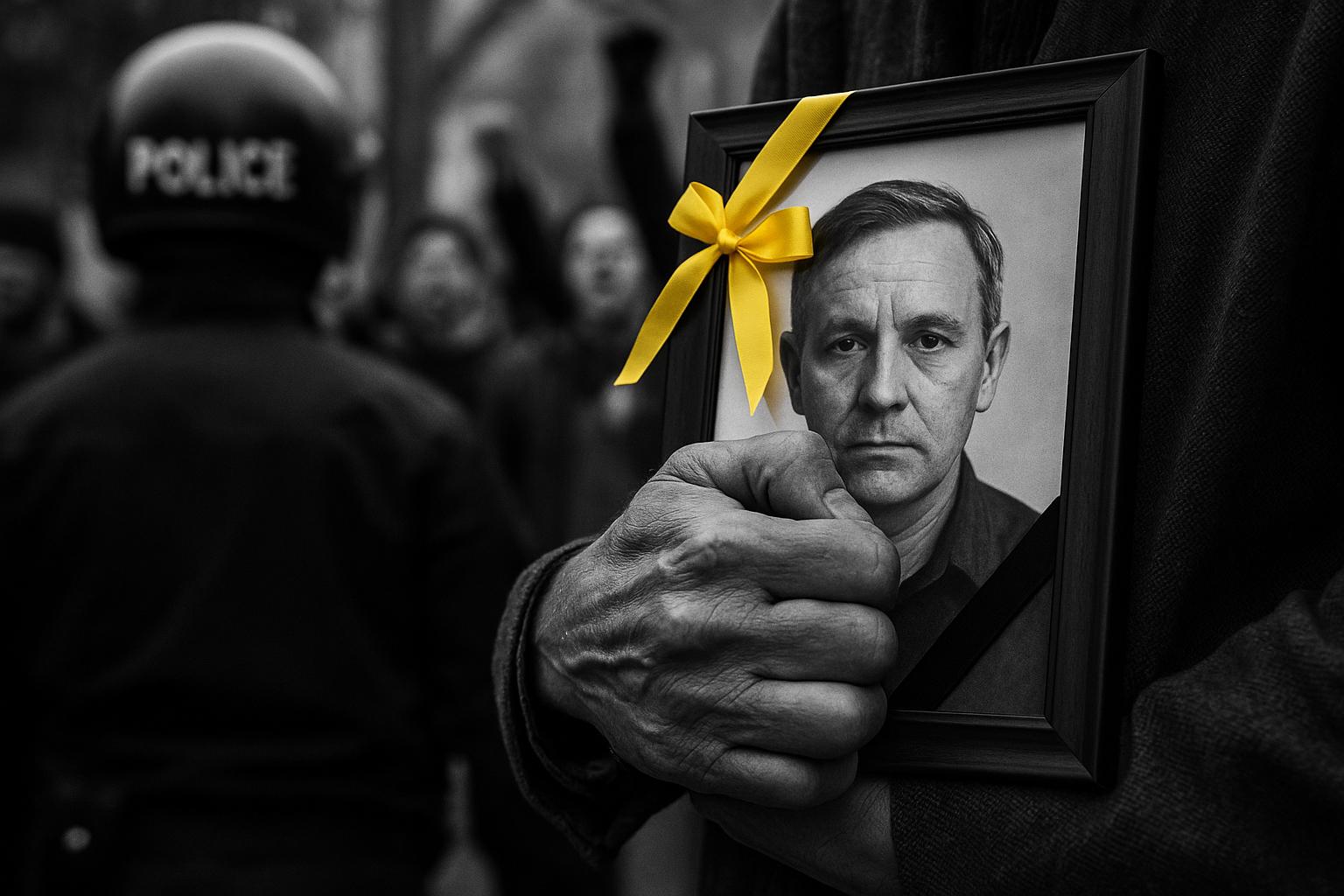Scuffles erupted near Downing Street on Sunday as thousands marching to demand the release of Israelis held hostage by Hamas clashed with a small group of pro‑Palestine activists, turning what organisers described as a family‑led plea into a tense, heavily policed scene. Witnesses described a moment of violence in which a man was grabbed by the throat before police intervened; one onlooker told the Daily Mail the incident was “horrific… so aggressive. It’s disgusting behaviour.” Organisers and relatives at the event urged calm but said the interruptions had disrupted a rally whose central demand was the urgent return of those taken on 7 October. (Daily Mail; AP; The Guardian)
The demonstration, organised by the coalition Stop the Hate alongside multiple Jewish groups, brought family members of hostages and community leaders to central London to press the government for more active diplomacy. The UK’s Chief Rabbi Sir Ephraim Mirvis joined the crowd and used the platform to criticise Labour’s pledge to recognise a Palestinian state while hostages remain, an intervention that underlined how the humanitarian appeal has become entangled with wider political arguments. According to reporting, speeches at Lincoln’s Inn Fields and later near Downing Street included relatives such as Noga Guttman and other family members who framed their appeal as a matter of life and death. (AP; The Guardian; Times of Israel; Daily Mail)
The rally took place against the backdrop of a volatile weekend in Westminster. Police had already carried out large‑scale operations on Saturday at pro‑Palestine demonstrations that followed the government’s proscription of the activist group Palestine Action; media reports said hundreds were arrested across the two days as officers tried to manage rival protests and maintain public order. Organisers of the hostages’ march said their purpose was narrowly focused on securing returns and pressuring international actors to act urgently. (AP; NDTV/Associated Press; Times of Israel; Daily Mail)
Estimates of the turnout varied: organisers told Jewish News the National March for the Hostages attracted as many as 40,000 people, while other coverage described “thousands” taking part — many waving Israeli flags, wearing yellow ribbons and holding photographs of the missing. Marchers repeatedly chanted “bring them home” as they processed towards government buildings, and roads in Westminster were closed as the Metropolitan Police policed the event. (Jewish News; Daily Mail)
Relatives used the podium to directly appeal to the prime minister. Adam Ma’anti, a cousin of the hostage Tsachi Idan, told the Daily Mail he believed the UK had not done enough and called on Prime Minister Keir Starmer to apply greater pressure on states believed to have contact with Hamas; he warned that timing recognition of a Palestinian state while captives remain could embolden the group. Other family members spoke of their grief and urgency, making the march as much a humanitarian plea as a political demonstration. (Daily Mail; Times of Israel)
Tensions flared when a small group of pro‑Palestine activists reportedly interrupted the rally with shouts and chants, prompting counter‑demonstrators to respond. Video and eyewitness accounts circulated of a confrontation that included pushing and the choking incident; police moved quickly to remove some counter‑protesters and made at least one immediate arrest for common assault, the Metropolitan Police said. Several outlets noted officers had warned people they faced arrest if they continued to disrupt the event. (Daily Mail; The Guardian; Jewish News)
The episode highlighted the fraught balance between free expression and public safety that has confronted London’s authorities through a summer of competing demonstrations. Organisers of the hostages’ rally insisted their position was “unequivocal” — that recognition of Palestinian statehood should not proceed until captives were home — while critics warned of the political consequences of such stances. Observers pointed out that family pleas have long intersected with broader policy disputes; similar dynamics were evident at earlier solidarity events in 2023 when leaders and politicians alike used such platforms to press for action and denounce violence. (Daily Mail; The Guardian; The Independent)
For the Metropolitan Police the weekend posed practical and reputational challenges: officers had to police multiple large gatherings, manage road closures and make arrests while attempting to protect speakers and participants. Organisers said the march had been intended as a peaceful, urgent humanitarian appeal; for many relatives, the immediate concern remained the same — securing the safe return of the remaining hostages — even as the events underlined how divided public sentiment and political manoeuvring in Britain complicate efforts to build a common approach. (AP; Jewish News; Daily Mail)
📌 Reference Map:
##Reference Map:
- Paragraph 1 – [1], [2], [3]
- Paragraph 2 – [2], [3], [6], [1]
- Paragraph 3 – [2], [5], [6], [1]
- Paragraph 4 – [4], [1]
- Paragraph 5 – [1], [6]
- Paragraph 6 – [1], [3], [4]
- Paragraph 7 – [1], [3], [7]
- Paragraph 8 – [2], [4], [1]
Source: Noah Wire Services
